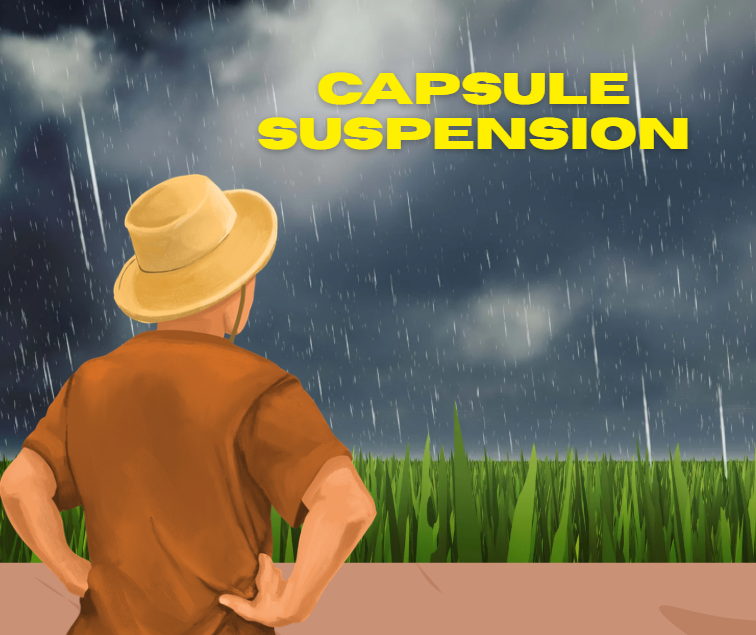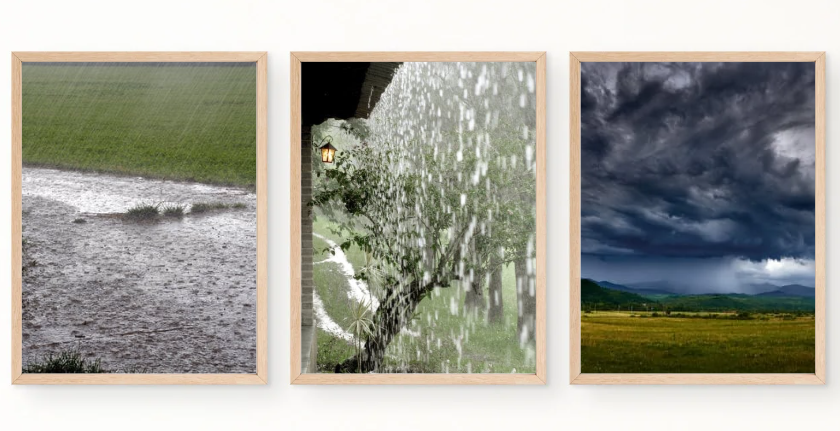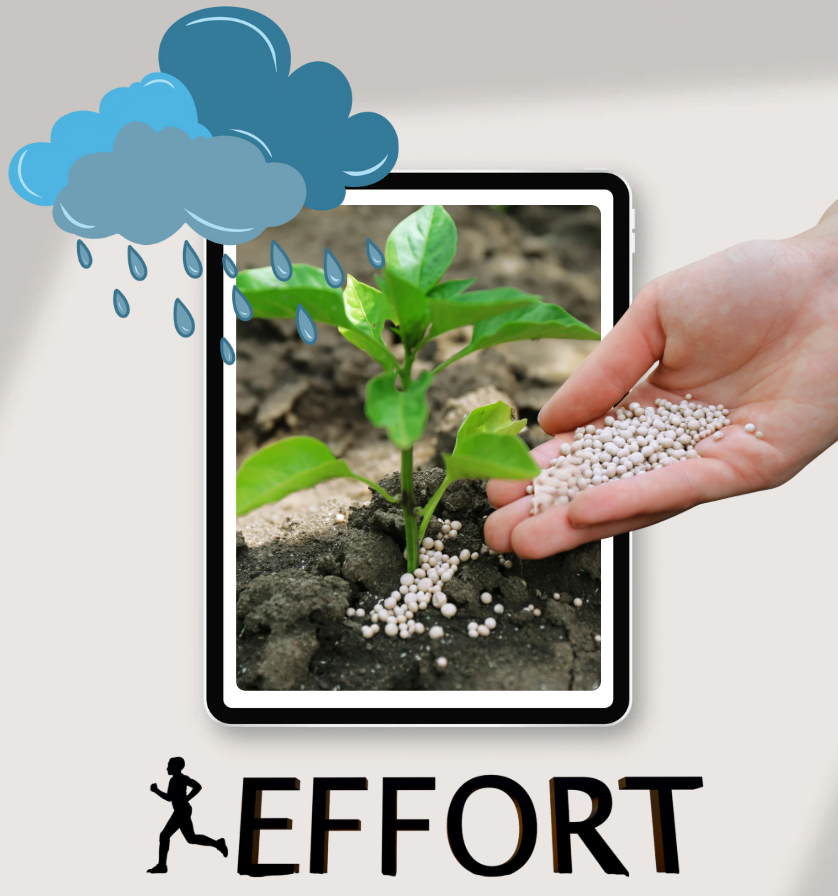
Do CS Formulations Wash Off in the Rain? Can They Be Used During the Rainy Season?
The rainy season is always a big concern for farmers when applying crop protection products (CPPs):
- “If it rains after spraying, will the product wash off completely?”
- “Do I need to re-spray?”
- “Are CS (Capsule Suspension) formulations effective during the rainy season?”
Let’s explore how CS technology works against wash-off, so farmers can feel confident using it in practice.
✅ 1. The “Rainfast” Mechanism of CS Formulations

CS (Capsule Suspension) pesticides are based on advanced microencapsulation technology, where the active ingredient is encapsulated in polymer microcapsules (micron or nano-sized).
When sprayed on leaves, these capsules:
- Adhere firmly to the plant surface
- Penetrate slightly into the leaf cuticle or bark layer
- Gradually release active ingredients over time
📌 This gives CS superior adhesion compared to traditional forms like EC (emulsifiable concentrate), SC (suspension concentrate), or WP (wettable powder).
☔ 2. Do You Need to Re-Spray After Rain?

- Case 1: Light rain after 2–3 hours of spraying
✅ No need to re-spray.
👉 Capsules have already adhered and are not easily washed away. - Case 2: Heavy rain within 1 hour of spraying
🔁 Consider re-spraying, depending on crop and product.
High-quality CS products may still retain some activity, but to be safe, a light re-spray 1–2 days later is advisable. - Case 3: Cloudy, high-humidity weather lasting many days
☑️ CS formulations show clear advantage: slow release + long-lasting activity → suppress fungal growth in persistently wet conditions.
🌱 3. Advantages of CS in the Rainy Season
|
Criteria |
Traditional (EC/SC) |
CS (Capsule Suspension) |
|
Leaf surface adhesion |
Low |
High (fixed microcapsules) |
|
Rain resistance (light rain) |
Easily washed off |
Strong rainfastness |
|
Effectiveness after rain |
Drops quickly |
Maintains gradual effect |
|
Sprays per season |
3–4 |
1–2 |
|
Crop safety |
Can cause burn or stress |
Gentle, low risk of injury |
👉 Many coffee, pepper, rice, and vegetable farmers have already switched to CS to reduce rainy-season risks, saving both labor and pesticide use.
🌾 4. Tips for Using CS in the Rainy Season
- Spray right after rain stops, when leaves are dry
- Choose high-quality CS products from reputable brands
- Stir/mix thoroughly before spraying to avoid capsule settling
- Avoid mixing with oils or spreader-stickers unless manufacturer-approved
📌 Conclusion
CS formulations are highly effective even during the rainy season thanks to:
- Slow release & strong adhesion
- Resistance to wash-off when applied correctly
- Extended protection, reducing spray frequency
💡 For farmers in rainy or humid regions with labor shortages, CS is the optimal solution for sustainable crop protection.
Bình luận
Những bình luận mới nhất



